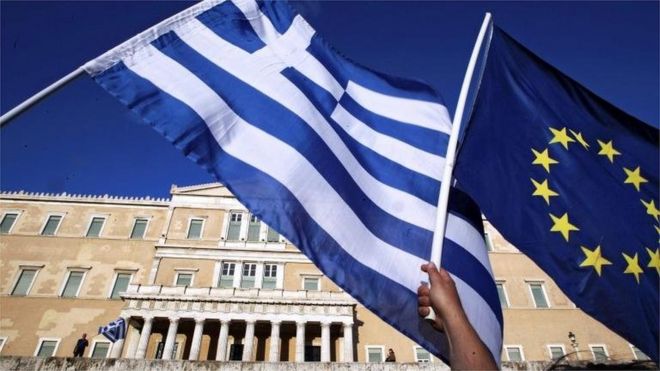Greece has reached a preliminary agreement with its international creditors on reforms needed to release the next instalment of its multi-billion-dollar bailout.

Greece has promised to further cut pensions, by 0.9% on average, and lower the tax threshold to produce savings worth 2% of gross domestic product.
The measures will have to be approved by the Greek parliament.
Creditors have agreed to hold talks on how to make Greece's debts sustainable.
Greece has been pushing for measures on debt relief.
The German finance ministry called the deal an important intermediate step.
Greece has to repay $7.5bn (£5.8bn; 6.9bn euros) to its eurozone lenders and the International Monetary Fund in July.
The next step is a meeting on 22 May of eurozone finance ministers, who are required to sign off on the deal.
Earlier this month, the Greek government agreed to take on another $3.8bn in cuts in 2019 and 2020.
Analysis: Andrew Walker, economics correspondent
It is painfully slow but this agreement is progress towards a bailout instalment that Greece needs if it's to make some debt payments due in July. Many Greeks facing even more austerity - pension cuts and tax rises - might not care much about whether that happens or not. But missing the July deadline would mean more financial turbulence and further delays before the rest of the eurozone would be ready to talk about additional debt relief. The IMF insists that's essential if the debt is to be made sustainable. But it won't be in the form of a reduction of the principal sum that Greece owes. It will be measures that effect the interest payments and the repayment period. Will it finally clear the decks and leave Greece financially self-sufficient? There are plenty of people thinking that this, the third bailout, will not do the trick
No comments:
Post a Comment